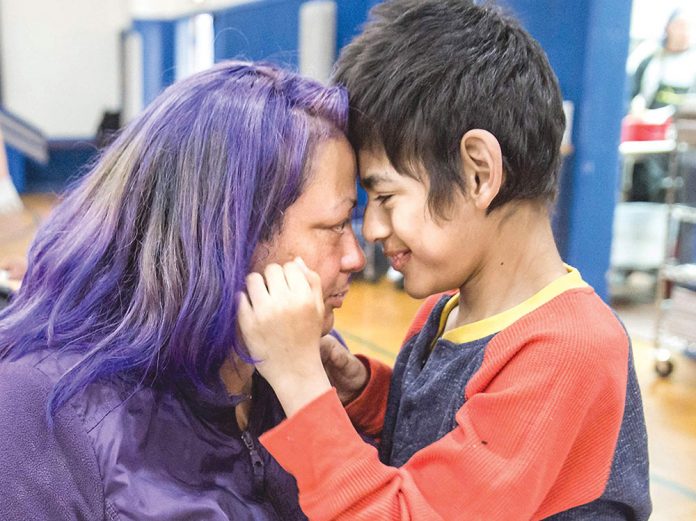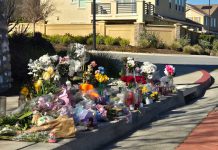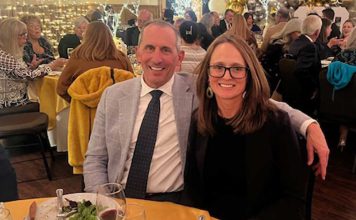Alex Bataz is 9 years old, the oldest of three children; his brother Bruce just turned 8, and sister Destiny will be 4 this year.
Alex has a dog named Rocky, a little brown Chihuahua who licks the boy’s face and bounces in circles in his lap. Alex loves all kinds of music and loves to sway to the music and watch his brother and sister dance.
He can only watch them because cerebral palsy has taken away his ability to walk. He can’t sing or talk with them because autism interferes with his ability to speak.
Alex spent the first few months of his life in the Neonatal Intensive Care Unit at Santa Clara Valley Medical Center. He has spent most of the last four years living in a Honda Odyssey minivan with Rocky, Bruce, Destiny and his mom and dad, Faviola and Carlos Bataz.
The Bataz family is one of an estimated 100 homeless families in southern Santa Clara County, among the approximately 1,260 homeless individuals in South County in the most recent homeless census taken in 2017. A new homeless census was taken in January and is expected to be released next month. Local agencies expect the numbers of people—and families—without homes in and around Gilroy, Morgan HIll and San Martin will increase.
After months of misfortune, including a broken wheelchair, the Bataz family has new optimism.
For two months, they lived at Santa Clara County’s temporary shelter for homeless families at the Arturo Ochoa Migrant Center on Southside Road in southeast Gilroy. The center shut its winter shelter operation March 25, forcing 35 families to leave to make way for the next seasonal tenants—migrant farm workers arriving for spring planting.
Abode Services, a leading Bay Area provider of services to people without homes, stepped in and spared the Bataz family from a return to more long nights sleeping in the van in a Gilroy shopping center parking lot. The non-profit agency was able to find the family temporary shelter in a local motel, and is working to find the family of five a more permanent shelter.
[subhed] Winter housing ends
In an interview this month, Faviola says she is frustrated by the paperwork required for the new housing assistance, but hopeful things will work out.
“It was only a winter program,” she says, shaking her blue-tinted hair. “It hurts to leave a place that you get used to, but the kids took it well, took it OK.
“So we are in a ‘vacation’ mode, back in a motel,” she says, shaking her head.
Then she sighs: “They keep asking me to go to meeting after meeting, and it’s like something is always missing and the paperwork—well it almost makes you want to give up,” and her voice trails off.
Even with the continuing struggles with Alex’s health and physical challenges, the first several years of her growing family “were OK” because they had a place to live in Gilroy, Faviola recalls.
“But then we lost the house that I was renting from a friend. My friend kicked me out,” says Faviola, a soft-spoken 37-year-old. “Destiny was just a baby.
“Living out of storage, and the van, is not really good.”
This winter’s usual four-month stay at the Ochoa Center, located near Gilroy’s wastewater treatment plant, was cut short, to two months, because farmworkers had stayed longer than usual in the fall. The county funding for 35 families didn’t meet the need.
Vicky Martin, director of community engagement for St. Joseph’s Family Center, says a half dozen families were turned away in January.
“Many of them are back living in their vehicles,” Martin adds.
[subhed] No safe parking in Gilroy
Martin says that In Gilroy, a night’s sleep in a station wagon, SUV, minivan or RV in an abandoned parking lot is often interrupted. “They get rousted a lot by authorities, because there is no safe parking area in Gilroy like there is in Morgan Hill,” says Martin.
“Faviola was so thrilled to be in Ochoa,” says Martin, who has been working to feed and house homeless people in Gilroy for more than 18 years. “She said, ‘It’s not glamorous, but it’s a home for the kids.’ ”
Faviola takes Bruce to school at El Robles Elementary each day, and sometimes drops Carlos off for temporary jobs.
“I have talked to some teachers, who say it’s very difficult to teach homeless children because there is no stability in housing and therefore they don’t have a good place to study,” says Martin. “It’s hard for the parents to be consistent with their homework when they are constantly worried about where they are going to sleep.
“Once a family becomes homeless it is so difficult to get out of homelessness. It’s a horrible cycle.
“The vast majority of the homeless people we serve—90 percent—are local,” says Martin. “They grew up here, they were born here, this is their community. That’s why they don’t want to leave; it’s the only thing they know. Even if they get the opportunity to go to San Jose, they don’t want to.
“This is home, this is where their children live; here is where their parents grew up.”
After a plate of pasta and some cheesecake at one of the three-times-weekly Lord’s Table dinners in Gilroy provided at no charge by St. Joseph’s Family Center, Alex sits in a plastic laundry basket on a four-wheeled cart. Destiny climbs in and out of a smaller plastic basket next to him, alternately dancing and watching the movie Up with Bruce on their mom’s phone.
Alex had a wheelchair, but it “stopped working,” as Faviola puts it. She is hopeful about getting a new one.
“Having a kid like Alex is tough,” she says, as she caresses his shoulders. “He is disabled. He doesn’t walk, he doesn’t talk.”
The children keep her going, give her life meaning, she says. “I’ve got three of them. I can’t complain.
“I’m not doing it for me,” Faviola says. “I’m doing it for them. I mean I’d be OK in a box, but these guys need more.”
During the dinner, friends come up and give her a hug, and tease the kids.
“I used to come here when I had a home, just because I liked it,” Faviola says of the Lord’s Table event in Gilroy. “It’s like family.”
[subhed] Living in a van
Living out of the van has been isolating, sometimes depressing, she admits.
“In the beginning I had a little rough time, when Carlos had to go to work and I was still with the kids.
“Sometimes he would work out of town, and these people are the ones who were there for me; they took care of me. I owe them a lot; they keep you humble.
“Sometimes, depression kicks in a little bit in the morning—but apparently, people don’t think that the homeless should have depression, ‘because you don’t have no worries about paying bills.’ It’s been thrown in our face a couple of times. Sometimes it gets rough,” the mother of three confides.
“But as long as you respect people, respect comes back,” she adds. “For me, I’ve met other moms, and they don’t even take their kids to the park, because they’re homeless. Me? I am there all day.”
She has mixed feelings about her hometown.
“You get both sides: I’ve had the meanest people come up to me, strangers meet me and say I’m a bad mom,” Faviola says. “It’s OK, I don’t mind. I don’t care what they think of me.
“I can understand why a lot of moms give up their kids,” she says later. “As a mom you are supposed to be able to protect and provide and do everything for them. Once you just don’t do one of those, the label is on you for being a bad mom.
“I think Gilroy is a good place to be if you want to pick yourself up again, and not be scared of hearing ‘No’ or getting the door slammed in your face once in a while.”
For Faviola, doors slammed and doors opening are metaphors for the ups and downs, the generosity and the rejection, she encounters daily.
Faviola Salcedo Bataz stays in touch with some of her Gilroy high school friends, but infrequently.
“They all have homes, so that’s a tough one, but it’s OK. I have some kids from high school that I used to be friends with, and they can give me a place, give me some jackets, give me some clothes, let us take a shower—they offer that much,” she says.
Carlos has faced different challenges. He still struggles with English, speaking Spanish to his family.
[subhed] Homeless ‘not bad people’
“People sometimes they say, ‘Look, he’s homeless, he’s a bad person.’ Homeless are not bad people,” Carlos says after his pasta dinner at the Lord’s Table event.
“Nobody wants to be in the street, where it’s cold—nobody. It’s really hard. When I see all these people here, they are not bad people,” he says, tears welling in his eyes. “I need a better life.
“Situations change people. Why do these things happen? Alcohol, a lot,” he continues. People who have the opportunity to live better, these people understand, these people can have a home, and people can bring a cup of food,” says Carlos. “We don’t need no money; the only thing we need is compassion, food, clothes, tarps for the cold.
“I am a working man,” he says proudly. “I have kids. I have a wife. I lose a home, but I love my life, love my kids, love my wife, I have a lot of personal problems, but I will change. I only want to be given a chance.”
What advice does Faviola have for others facing similar difficult situations?
“If the door closes in your face, don’t worry; there is always another that is open. Somebody will step up. I mean it gets cold, you get hungry, but there’s always someone that is willing to give you a plate of food, some clothes.
“I mean when you have kids, don’t hide them,” she advises. “It’s not their fault, it doesn’t matter what situation you are in, the kids keep you happy. I mean you can be broke, but you can find a dollar to get them a kite. It’s not that expensive to buy a kite.”
Outside St. Mary’s Church, after the dinner, Carlos patiently shows an excited Bruce how to fly his new kite.
“I like my papalote!” shouts the smiling second-grader as the kite soars high over Church Street.














